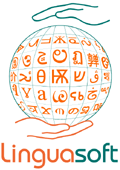Transcoding Documents to Unicode

Unicode has been a hot topic for the past few years. Yet, many organizations still hesitate to move to Unicode, mainly because they have a huge collection of archives and documents, and they don't have the right tools to do just that.
Good news: we have those tools, and ever better, we have the required expertise to develop new tools. Attached is an example of batch transcoding of a language database, from a legacy font (non-Unicode) to Unicode.
Labels: encoding, font, legacy, non-unicode, transcoding, unicode























































